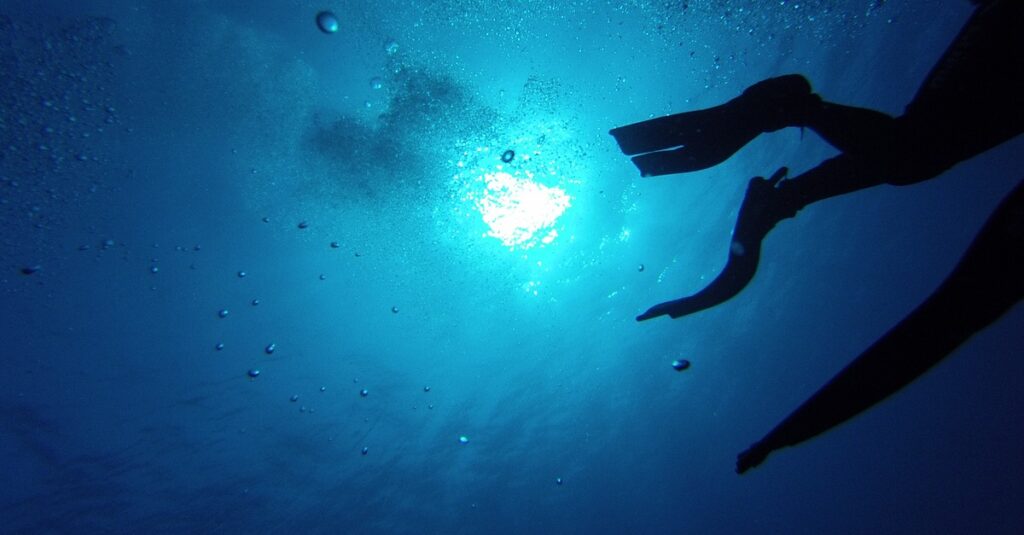

While the principles of freediving can be self-taught from books or online materials, it is unsafe to freedive alone. When you’re a beginner, it is safest to freedive with an experienced instructor. Later, you should always freedive with a buddy in case you experience a blackout or other trouble while in the water.
You can teach yourself the theory of freediving from online courses or books. In practice, it is inadvisable and dangerous to freedive alone. When starting out in freediving, it is wise to have an instructor and you should certainly not attempt freediving without learning key safety and physiology principles. You should always freedive with a buddy whether diving in a pool or open water.
The True Story Book of Freediving Champion Audrey Mestre and the Story of Her Death
View on Amazon: The Last Attempt (Opens new tab)


Top rated read
If you’re wondering whether you can teach yourself to freedive, then read our article first. We tell you how long it can take to learn to freedive, how difficult it can be, and what level of fitness you need before beginning.
How long does it take to learn to freedive?
Freediving requires you to learn physiology and safety principles, become competent in breathing and breath-holding exercises, and master static and dynamic apnea techniques along with mental resilience.
With focus and good instruction, you may be able to take your first shallower breath-hold dives within days and complete a course of diving to 10 or 15 meters within weeks. Becoming a competitive freediver or diving to greater depths could take many months or years.
Knowing how to equalize pressure in your ears and training your body to better cope with low oxygen and high carbon dioxide levels are crucial for freediving at significant depth.
Is it hard to freedive?
Freediving might be viewed as hard because it is not a sport to be undertaken casually, and because your muscles may have to work many times harder underwater to perform relatively small movements.
To be safe and competent in deep water, freedivers must learn crucial physiology principles, practice breath-holding, and become physically and mentally accustomed to the pressures and risks of a deep underwater environment.
The pressure on the body experienced in deep water can be many times the normal atmospheric pressure at sea level. This high pressure significantly compresses the airspaces in lungs, sinuses and ears, and makes the muscles in your arms and legs work far harder than at the surface.
For more information, we’ve written a full article on how difficult freediving is (opens new tab) which you can check out.
Do you have to be fit to freedive?
You require a basic level of medical fitness to freedive and should consult a doctor if you live with heart, lung or other relevant conditions. In some places you may be required to consult a physician before undertaking a freediving course.
You should not freedive if you have a cold or other respiratory infection, even if minor. It’s particularly important that you are able to equalize the pressure of your ears underwater – anything that causes a blockage in the ear-nose-throat area could cause pain or injury from the pressure of water.
If you are medically fit and able to swim but also overweight you can learn to freedive, although it may be harder work at first. Competitive divers and accomplished recreational divers are likely to be generally fit and to have a regular program of cardio, strength and apnea training.
References
https://www.deeperblue.com/the-science-behind-the-freediving-breath-hold/
